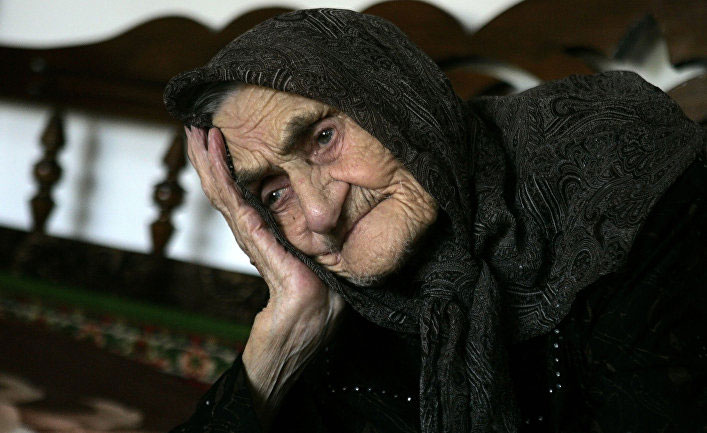Does genetic mutation help humans live longer than 100 years?
British scientists have discovered 25 genetic mutations, helping humans to increase their lifespan.
In 2017, Ana Vela (Spanish citizen) died at the age of 116. She is the oldest living person in Europe; is the 3rd person in the world, and also the symbol of this country's longevity.
Researchers at the Institute of Evolutionary Biology (UPF-CSIC), Genomic Regulatory Center of Bristol University and the University of Liverpool (UK) said the secret of longevity is contained in 25 genetic mutations .
In the study published in the journal Molecular Biology Evolution, the relationship between gene variants and longevity among primates and humans.

Ms. Kesi Karueva, born in 1884, in Goity village in Urus-Marta district, Russia - (Photo: RIA Novosti).
Scientists have come to the conclusion that humans have mutations in genes, linked together, for example, with the ability to heal wounds, coagulate and treat cardiovascular diseases, to be children. people prolong life.
According to scientists, these mutations have the advantage in the early stages of life, but, they become harmful when they get old. For example, mutations that allow calcium accumulation, may be useful for the formation of skeletal systems at an early age. However, in the elderly, large amounts of calcium contribute to the development of atherosclerosis.
Gerard Muntané, one of the first scientists to begin studying this issue at Virgili Medical Research Institute, said: "Mutations have different effects depending on the stage of life: some are useful. but after the reproductive period they are harmful to us. "
Because mutations are found to be involved in cellular aging, scientists believe that the results of the study may contribute to the development of new therapeutic agents in the treatment of intercourse. related to aging and demonstrating the potential of evolutionary methods for medicine.
Scientists claim that it is not yet possible to determine why "" and primates have the same set of 25 mutations that allow them to extend their lifespan but they do not live as long as humans do.
- Because of possessing many preeminent genes, can humans live for hundreds of years?
- Why do people live longer than monkeys?
- Discovered 4 genes that help people live longer than 100 years old
- Humans know how to say it thanks to a genetic mutation
- People only need 4 hours of sleep a day due to genetic mutations
- Drink less alcohol, live longer?
- Many people will live long
- Humans know to eat plants from 180,000 years ago
- Worms live longer when flying into space
- Check 3,500 genetic errors of children before birth
- The doctor believes he can live up to 150 years old
- 5 unexpected things to help men live long
 Green tea cleans teeth better than mouthwash?
Green tea cleans teeth better than mouthwash? Death kiss: This is why you should not let anyone kiss your baby's lips
Death kiss: This is why you should not let anyone kiss your baby's lips What is salmonellosis?
What is salmonellosis? Caution should be exercised when using aloe vera through eating and drinking
Caution should be exercised when using aloe vera through eating and drinking Astronaut's blood after space flight shows signs of DNA mutations
Astronaut's blood after space flight shows signs of DNA mutations  Deciphering the reason why people often die at the age of 80
Deciphering the reason why people often die at the age of 80  New Covid-19 'super-variant' discovered containing 32 mutations: Virologist says it's horrible
New Covid-19 'super-variant' discovered containing 32 mutations: Virologist says it's horrible  Why not everyone is beautiful
Why not everyone is beautiful  More scary mutations than genetic changes?
More scary mutations than genetic changes?  All humans are mutant creatures
All humans are mutant creatures 